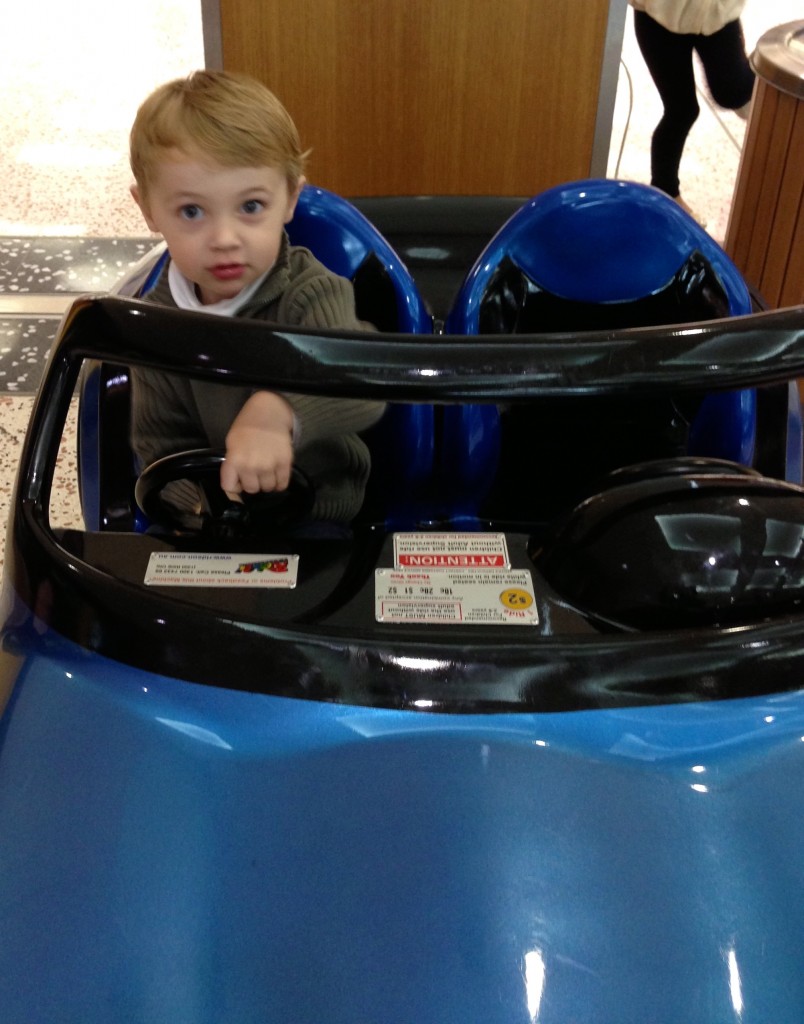Do you have a 3- or 4-year-old? Do you struggle to make time for literacy activities with your child? Here is something everyone can make time for…
Did you know that you can help your child practice his early literacy skills while you’re driving? Believe it or not, some pre-reading skills do not require books at all! This is because these skills have to do with the sounds of language, and are referred to as phonological awareness.
Now that you’ve already introduced your child to the alphabet, and he knows the names and sounds of many letters, you’re ready to move on to teaching and practicing the following, very important, phonological skills:
- Recognising and producing rhyming words
- Breaking words into syllables
- Identifying the first sounds of words
These are some games that my 3-year-old son and I play while we’re driving in the car. They are quick and easy, as they require no planning or preparation! All you have to do is to think of words. The great thing about doing this while driving is that you can just look outside and pick something around you if you’re stuck for ideas. My son loves playing these games, and I hope your children will too!

The Rhyme Game
Once children are able to recognise rhyming words, you can move on to helping them generate their own rhyming words. For this game, we simply take turns saying two words that rhyme! You can use any words that come to mind, or you can look outside for ideas.
- For example: car-star, light-bite, mall-hall, sign-fine
- They do not have to be real words; they can be made up just to rhyme. Sometimes these are more fun for my 3-year-old because they sound funny!
- Variation—Sometimes we make it harder by requiring 3 words, not just 2, such as sun-fun-run, mummy-dummy-tummy
The Clapping Game
This game helps develop your child’s ability to segment words into syllables. (This is an essential skill for all future reading, writing, and spelling.) You will need to demonstrate how to do it, then practice with your child several times before he’ll be ready to do it on his own. You can say, “Let’s clap this word into parts.”
- Choose any word for your child to clap into syllables. Make sure you choose words with different numbers of syllables to keep it interesting, such as dri-ving, light, um-brel-la
- It’s okay if he doesn’t clap every word correctly. Accept his almost-got-its and keep playing. Obviously you can’t clap when you’re driving, so do something else, like tapping syllables on the steering wheel.
- Variation—If your child is advanced enough, you can ask him to count the syllables. Likely he’ll need to clap a word more than once to do this.
The Sound Game
This game allows your child to practice identifying the first sound of a word. Teach your child to repeat the word a few times at the beginning, while listening for the first sound. And I do mean sound, not name of the letter. For example, Dad starts with a /d/ sound. Also, don’t forget that some first sounds are /sh/, /th/, /ch/.
Choose things you can see out the window of your car, and ask, “What sound does road start with?” “What’s the first sound of light?” etc.
Note—Until your child is ready (age 5ish), be careful to avoid words that start with difficult blends, such as tr, tw, cl, dr, pr, spl, sk, st, etc. because the first sound is not clear at all and can be very difficult for a young child to discriminate from the other sounds.
The Guessing Game
This game is to practice matching beginning sounds with corresponding words. You think of a word that your child has to guess. As a clue, you give him the first sound of that word. For this game, it’s easiest to play using categories to narrow down the options, otherwise it’s way too hard!
- For example, “I’m thinking of a [colour] that starts with /p/.” Again, say the sound, not the name of the letter.
- Other good categories are: fruit, clothing, names of our family, animals, things at the beach, things in this car, the possibilities are endless…
If you present these activities to your child as fun, and ham it up a bit, he’ll love these simple games! We only spend a few minutes on each game, but that’s all it takes to practice the skills needed for future literacy success!
